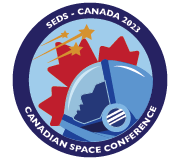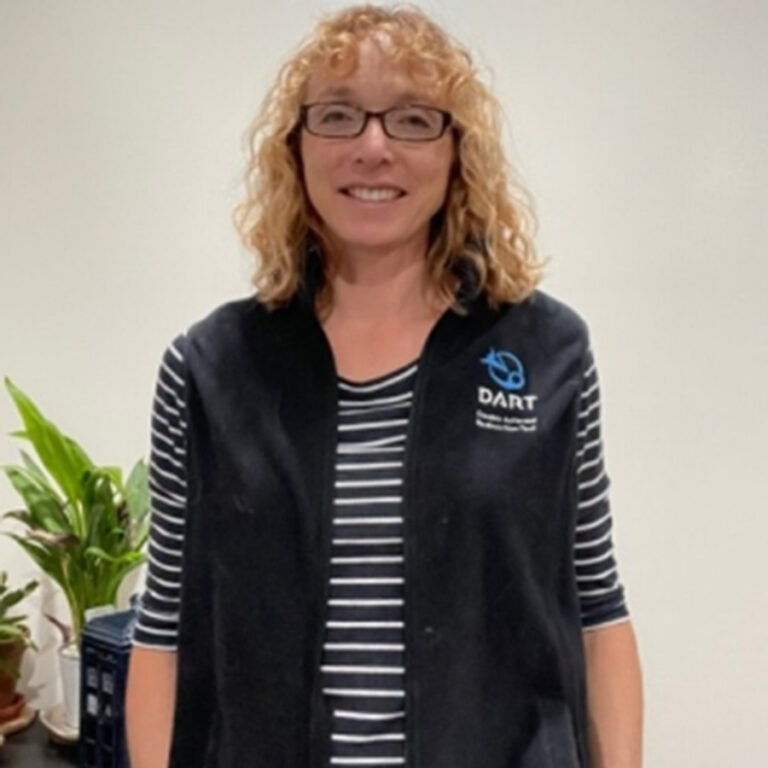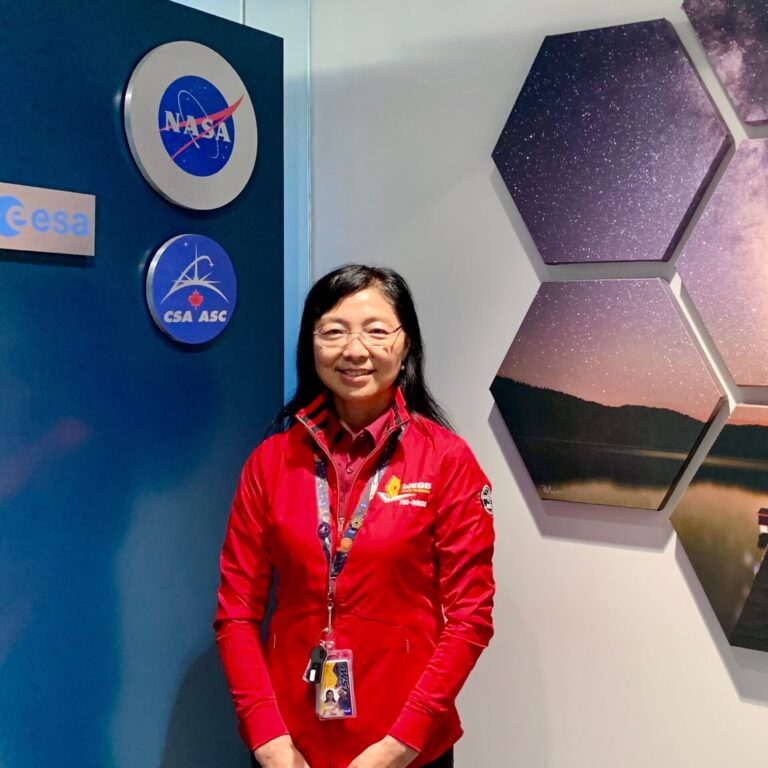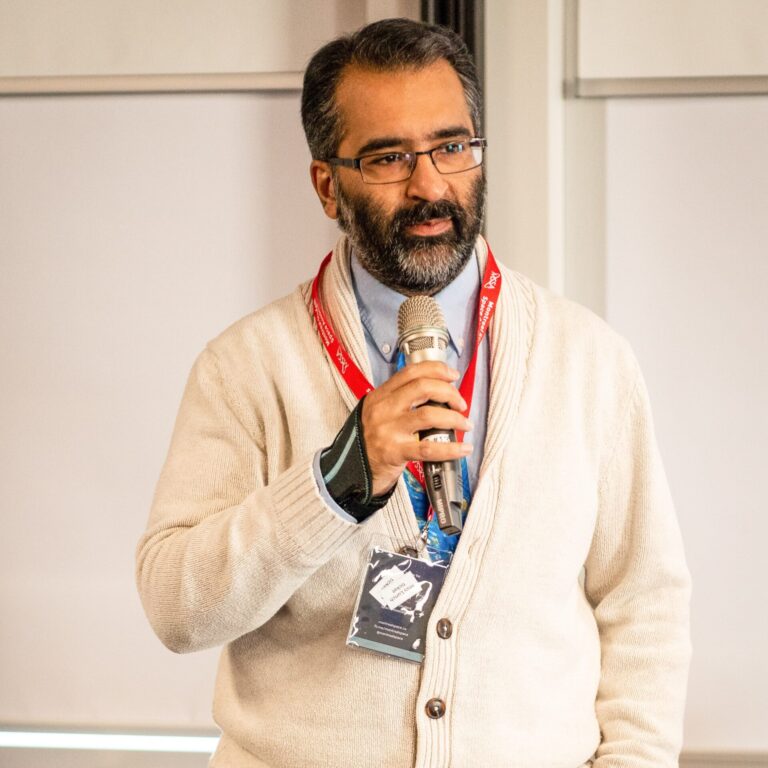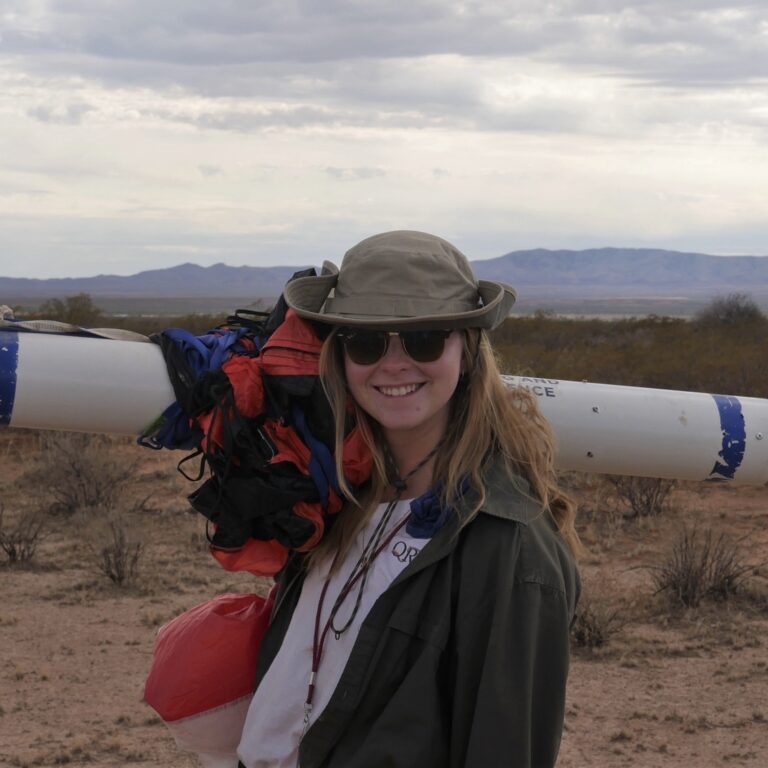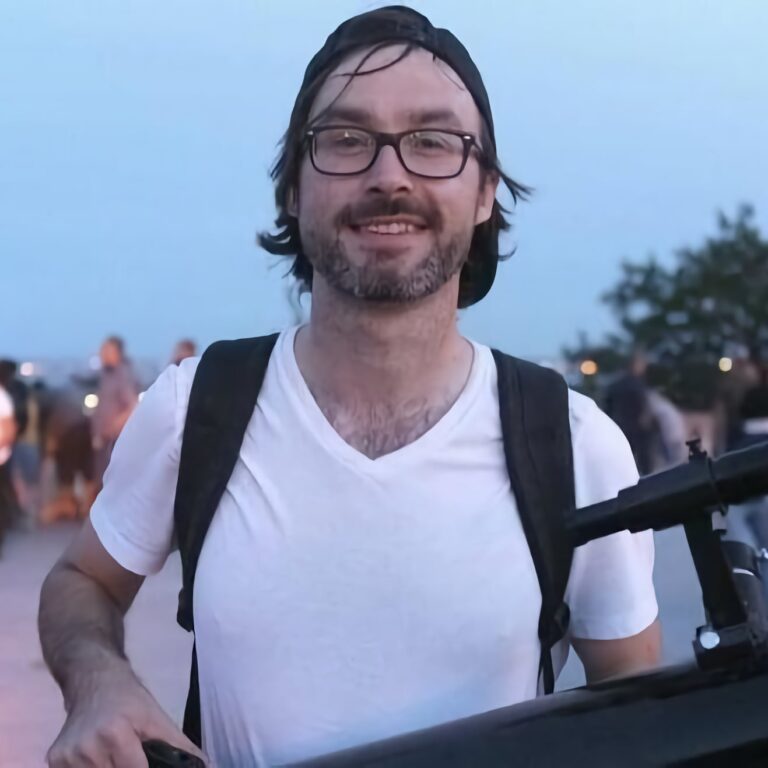Program for Day 1 — Saturday, January 28, 2023
Note for attendees: Please note that this program may be subject to change as the conference draws nearer (with additional speaker information coming soon), though the Conference team will strive to ensure this program appears as close to the final schedule as possible.
9:00 – 9:45 am
Registration and Networking
9:30 — 9:45 am
Welcome & Opening Remarks
9:45 — 10:30 am
Saturday’s Opening Keynote (Virtual)
Dr. Julie Bellerose (she/her)
Bellerose is the DART Navigation chief, based at the Jet Propulsion Laboratory in California. She graduated with a BEng in Mechanical engineering from McGill University and a PhD in Aerospace engineering from the University of Michigan. She has supported navigation of Cassini, Hayabusa2, Rosetta, and Osiris-Rex. Julie made history when she led her team through a successful test that showed NASA could deflect an asteroid aimed toward Earth.
10:30 — 10:45 am
15-Minute Coffee Break
10:45 am — 11:45 pm
How Did We Get Here? — Pointing the James Webb Space Telescope at the Distant Past
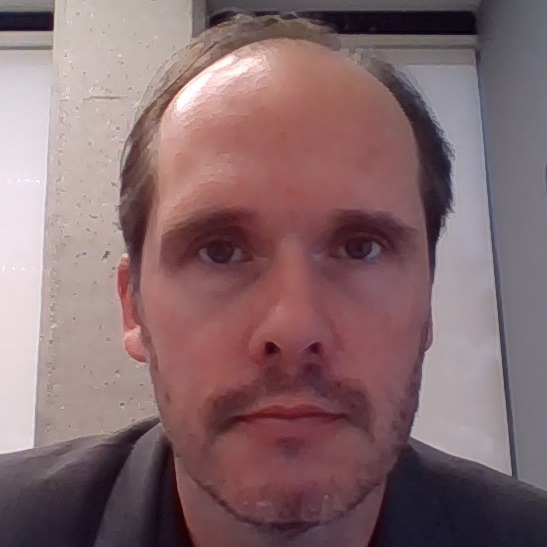
Martin Bergeron (he/him)
Martin Bergeron joined the Canadian Space Agency in 2000 as a remote-sensing analyst within the Optical Sensors Group. In his early career, he contributed to the development of hyperspectral mission concepts, then was later assigned to a variety of positions such as Manager EO Technologies, Program Lead Atmospheric and Solar Terrestrial Sciences, Head Collaborative Research, Senior Programs Officer Planning, Manager Strategic Planning, and Manager Earth Observation Applications and Utilization. Appointed Manager Planetary Science and Space Astronomy Missions in 2019, he is currently Interim Director, Space Exploration Development, with a portfolio ranging from space astronomy to planetary sciences including the Lunar Exploration Accelerator Program. Martin Bergeron holds a B.Sc. in physics (honours) from McGill University, an M.Sc. in astrophysics from Université de Montréal and a Ph.D. in remote sensing from Université de Sherbrooke.

Dr. Nathalie Nguyen-Quoc Ouellette (she/her)
Nathalie N.-Q. Ouellette is an astrophysicist, science communicator and lifetime lover of all things space! She obtained her Ph.D. in Physics & Astronomy at Queen’s University in Kingston, Ontario in 2016. Her research focuses on galaxy formation and evolution, particularly those found in clusters. Nathalie is currently the Deputy Director of the Trottier Institute for Research on Exoplanets and the Mont-Mégantic Observatory (OMM) at the University of Montréal and is also the Outreach Scientist for the James Webb Space Telescope in Canada collaborating with the Canadian Space Agency. She is a frequent contributor and analyst in Canadian media on everything related to space. She also organises and participates in science outreach events from local to international scales to encourage the interest and participation of youth and the general public in space science and to increase scientific literacy in Canada.
Julia Zhou (she/her)
Julia has been working on JWST for 19 years since 2004 as the technical lead on FGS/NIRISS instruments team at Honeywell. Her expertise is in onboard image processing and control algorithms design & implementation for FGS/NIRISS. She also worked on other Canadian Missions, Sapphire, SWARM and CASSIOPE since 2000. She is currently the technical lead of software systems for QEYSSat Mission at Honeywell. She holds a M.Eng. in computer engineering and she is entitled to practice as a Professional Engineer in Ontario.
11:50 — 12:25 pm
My Unconventional Career Journey: Astronomy to Science Communication

Dr. Parshati Patel (she/her)
Dr. Parshati Patel is an Astrophysicist turned Science Communicator and Author based at Western University. Parshati is currently on secondment to the Canadian Space Agency, where she is the Program Designer and Education Advisor in the Youth STEM Initiatives team. She has a Ph.D. in Astronomy and Planetary Science & Exploration from Western University. For 10+ years, Parshati has been sharing her passion for space with Canadians, especially youth, through local and national outreach initiatives both online and offline. Parshati has extensive experience raising space awareness amongst the masses! She has developed and led numerous space-themed classroom workshops, after-school programs, and public events, trained graduate students and educators, engaged with the media, produced podcasts, developed and coordinated social media and web content, and fundraised and managed several outreach initiatives. Parshati serves on the Board of Advisors for Students for Exploration and Development of Space (SEDS) – Canada and Zenith Canada Pathways. In addition to consulting for science books, she also recently authored a children’s book called ‘My Books of Stars and Planets’.
12:30 — 1:30 pm
Lunch Break
1:30 — 2:35 pm
Option A — Workshop on Astrophotography: Using Remote & Space Telescopes — DIY Astrophotography of the Andromeda Galaxy
Learn some simple steps to process images from Remote Telescope Observatories along with an overview of what networks are available for educational or amateur astronomers, explore some of the public data available from Solar System probes, and learn how to develop and process your own image of the iconic Andromeda Galaxy from your own backyard! Bring your Windows based PC and learn how to make details emerge from even faint deep sky objects.
Requires prior downloading of some free image processing software and image files.
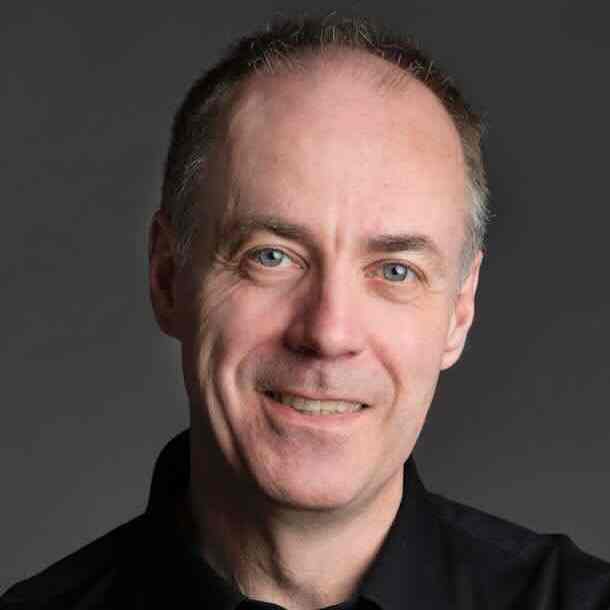
Dr. Russell Fralich (he/him)
Russell Fralich is an amateur astronomer specializing in astrophotography, author and business professor. He serves as the Outreach Coordinator at the Royal Astronomical Society of Canada, Montreal Centre. He is also Associate Professor of Strategy at HEC Montreal and the author of a critically acclaimed thriller novel. He has degrees in Engineering Physics and Electrical Engineering from McMaster University and a Ph.D. in Strategy from HEC Montreal.
Dr. Karim Jaffer (he/him)
Prof. Karim Jaffer is a Physics and Astronomy Professor at John Abbott College – employing a unique student-directed, just-in-time teaching approach incorporating current astronomical data, research, and including experiential learning opportunities – resulting in several research awards and published articles in SkyNews magazine over the past 7 years.
In the amateur astronomy community Karim has been the Public Events Coordinator for the RASC Montreal Centre since 2016, helping re-establish the I.K.Williamson Astronomy Library and coordinating both public events and outreach activities throughout the Montreal area, cultivating partnerships with the Rio Tinto Alcan Planetarium, the Institute for Research on Exoplanets (iREx), the Cosmodome, Explore Alliance, the Astronomical League, AstroRadio – now Space Oddities, CASCA and many local amateur astronomy groups, in addition to mentoring several Student Astronomy clubs and coordinating visits to local schools, guides, scouts and libraries. Karim is a member of the National RASC Education and Public Outreach Committee and the 2021 recipient of the Charles M Good Award.
Option B — YSpacE Competition
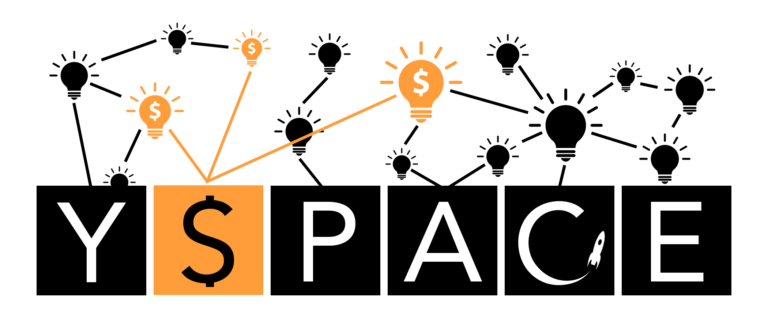
2:40 — 3:20 pm
Multi-Robot Planetary Exploration with Swarm Intelligence
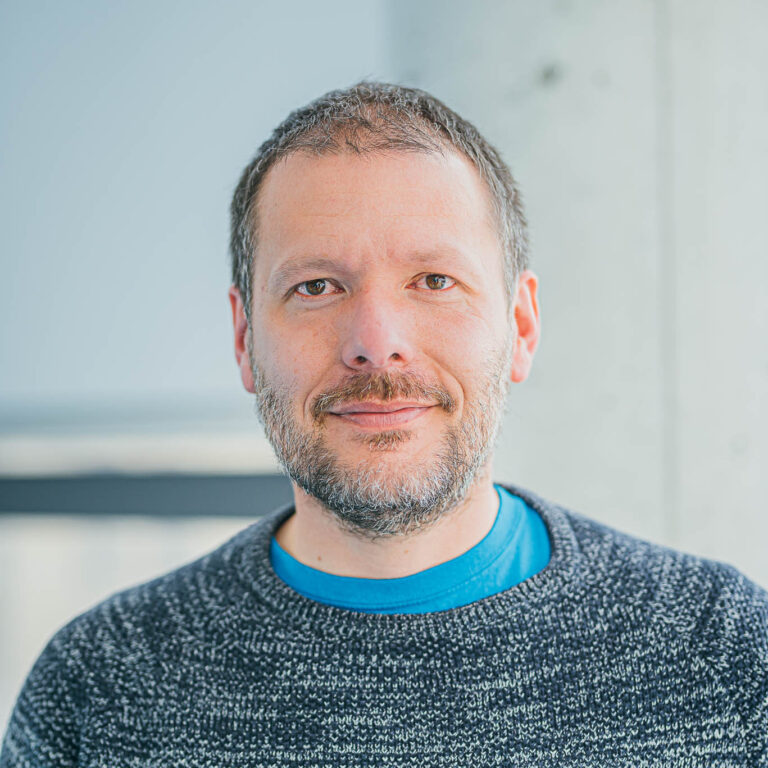
Professor Giovanni Beltrame (he/him)
Giovanni Beltrame obtained his Ph.D. in Computer Engineering from Politecnico di Milano, in 2006 after which he worked as microelectronics engineer at the European Space Agency on a number of projects spanning from radiation-tolerant systems to computer-aided design. In 2010 he moved to Montreal, Canada where he is currently Professor at Polytechnique Montreal with the Computer and Software Engineering Department. Dr. Beltrame directs the MIST Lab, with more than 20 students and postdocs under his supervision. He has completed several projects in collaboration with industry and government agencies in the area of robotics, disaster response, and space exploration. His research interests include modeling and design of embedded systems, artificial intelligence, and robotics, on which he has published research in top journals and conferences.
3:25 — 4:05 pm
SEDS Projects Highlight
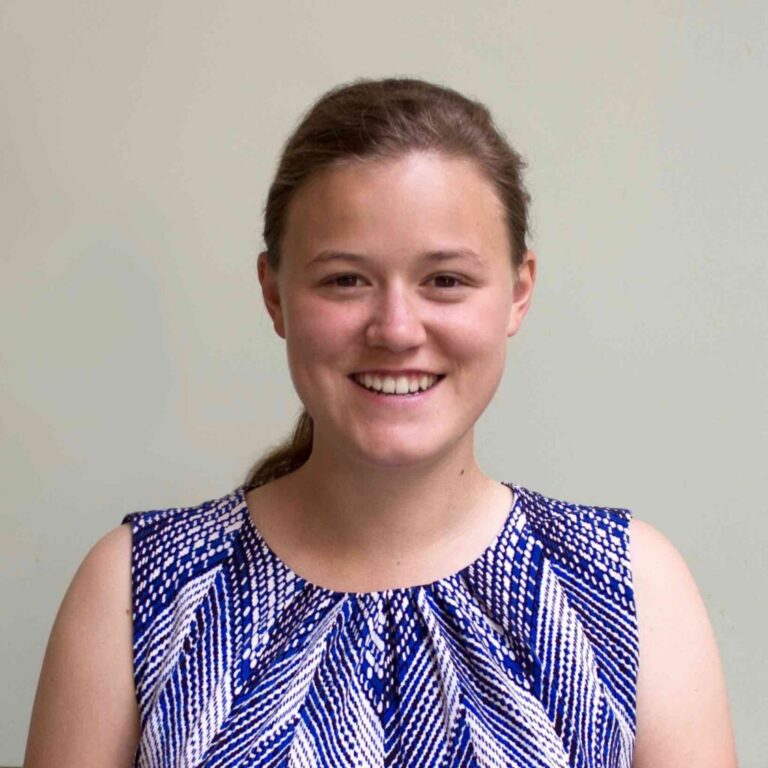
Alina Kunitskaya (she/her)
Alina Kunitskaya holds a BSc in Chemical Engineering from the University of Calgary and is currently a PhD candidate in Biomedical Engineering at the University of British Columbia. Her passion for solving space exploration challenges led to her involvement in developing a process to recycle astronauts’ fecal waste into 3D-printable bioplastics, developing and flying a scientific payload in microgravity as part of SEDS-Canada CAN-RGX project, developing an oxygen production process on Mars, and completing a simulated sub-orbital spaceflight to help scientists examine the physiological and psychological impacts of g-forces associated with spaceflight. She is excited to continue working with SEDS-Canada to provide students with hands-on opportunities in the Canadian space sector.
4:10 — 4:30 pm
15-Minute Coffee Break
4:30 — 5:10 pm
SIGNALS: Learning on the Birth of the Stars in Galaxies
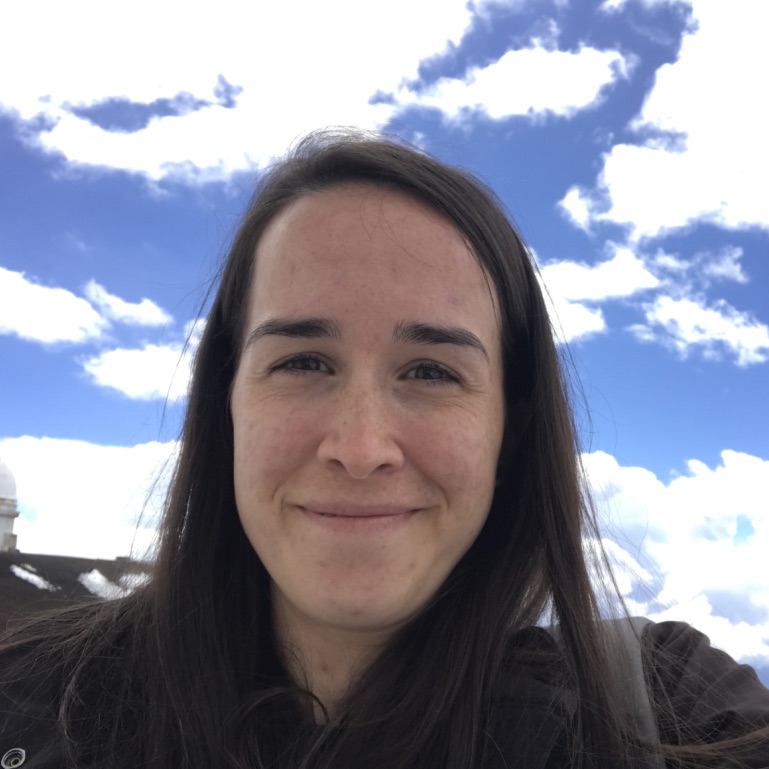
Dr. Laurie Rousseau-Nepton (she/her)
Laurie Rousseau-Nepton is a resident astronomer at the Canada-France-Hawaii Observatory. As the first Indigenous woman in Canada to obtain a PhD in astrophysics, she received her diploma from Université Laval by studying regions of stellar formation in spiral galaxies. Laurie Rousseau-Nepton’s research is partly funded but the National Science Foundation. She was a FRQNT postdoctoral scholarship recipient, and previously received the Hubert Reeves Fellowship and the Award for native women in sciences of the Association des femmes diplômées des universités du Québec. She is now leading an international project called SIGNALS, aiming at observing thousands of newly born stars in galaxies close to the Milky Way to understand how their birthplace affect the rest of their life and the galaxies evolution. She is working on and volunteering for different projects to promote inclusivity in Science. This includes an upcoming web documentary produced by the National Film Board of Canada, which will be coming out this year.
5:15 — 5:55 pm
Panel: What Can We Learn From the James Webb Space Telescope Data?

Dr. Lisa Dang (she/her)
Lisa Dang recently joined the Trottier Institute for Research on Exoplanets at Université de Montréal as a postdoctoral scholar. During her PhD at McGill University, she also held a research position at the NASA Spitzer Science Center at Caltech in Pasadena. She studies the diversity of exoplanets and their climate with a variety of space telescopes, most excitingly with the upcoming James Webb Space Telescope. She hopes to understand how planets form and evolve to ultimately uncover the recipe for habitable planets.
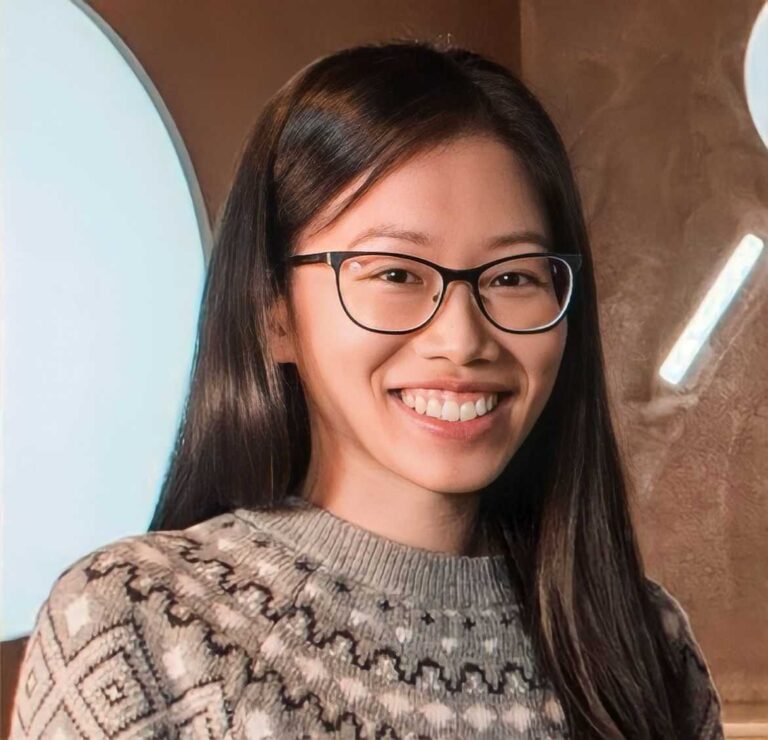
Olivia Lim (she/her)
Olivia Lim is a PhD student at the Trottier Institute for Research on Exoplanets at the University of Montréal. Her research focuses on the TRAPPIST-1 system, a system made up of seven Earth-sized rocky exoplanets orbiting a small red star located 39 light-years away from our solar system. Some of those planets could have temperatures that leave the possibility for liquid water on their surface, an exciting avenue for the search for signs of extraterrestrial life.
6:00 — 6:05 pm
Rocket Lab: Lifting Human Potential
Abigail Lee (she/her)
I am a mechanical engineering student from Queen’s University and currently on a year long professional internship at Sinclair Interplanetary by Rocket Lab. In my previous three years at Queen’s I have participated in multiple clubs including the Queen’s Rocket Engineering Team where I was payload lead and helped launch our rocket in New Mexico to 30,000ft. Currently at Rocket Lab I work on the research and development of our star trackers and reaction wheels at our Toronto office. Outside of work and school you can usually find me at an airport working towards my private pilots license.
Francis Picotte (he/him)
From an early career in business development and management, Francis’ passion for science and space drove him to return to university in the STEM fields. He first obtained a B.Eng in Aerospace Engineering (Space Systems) at Toronto Metropolitan University, during which his involvement included founding a new SEDS chapter and co-founding a renewed Hyperloop design team, representing students’ interests at a multitude of space industry associations, conferences, and events, and organizing talks, panels, and recreational events to spread awareness of space careers within the student body. Now finishing(TM) an MASc. in Spacecraft Avionics and Instrumentation at Toronto Metropolitan University, he has recently joined the Sinclair Interplanetary team at Rocket Lab in Toronto where he serves as the industry’s first point of contact for sales and technical inquiries for star trackers and reaction wheels.
